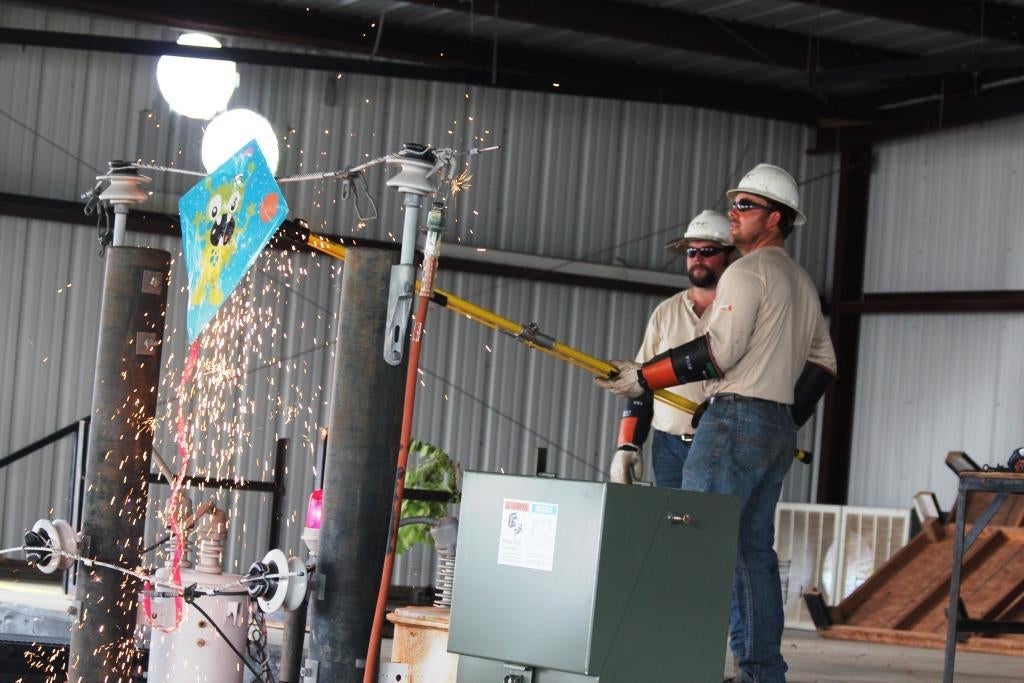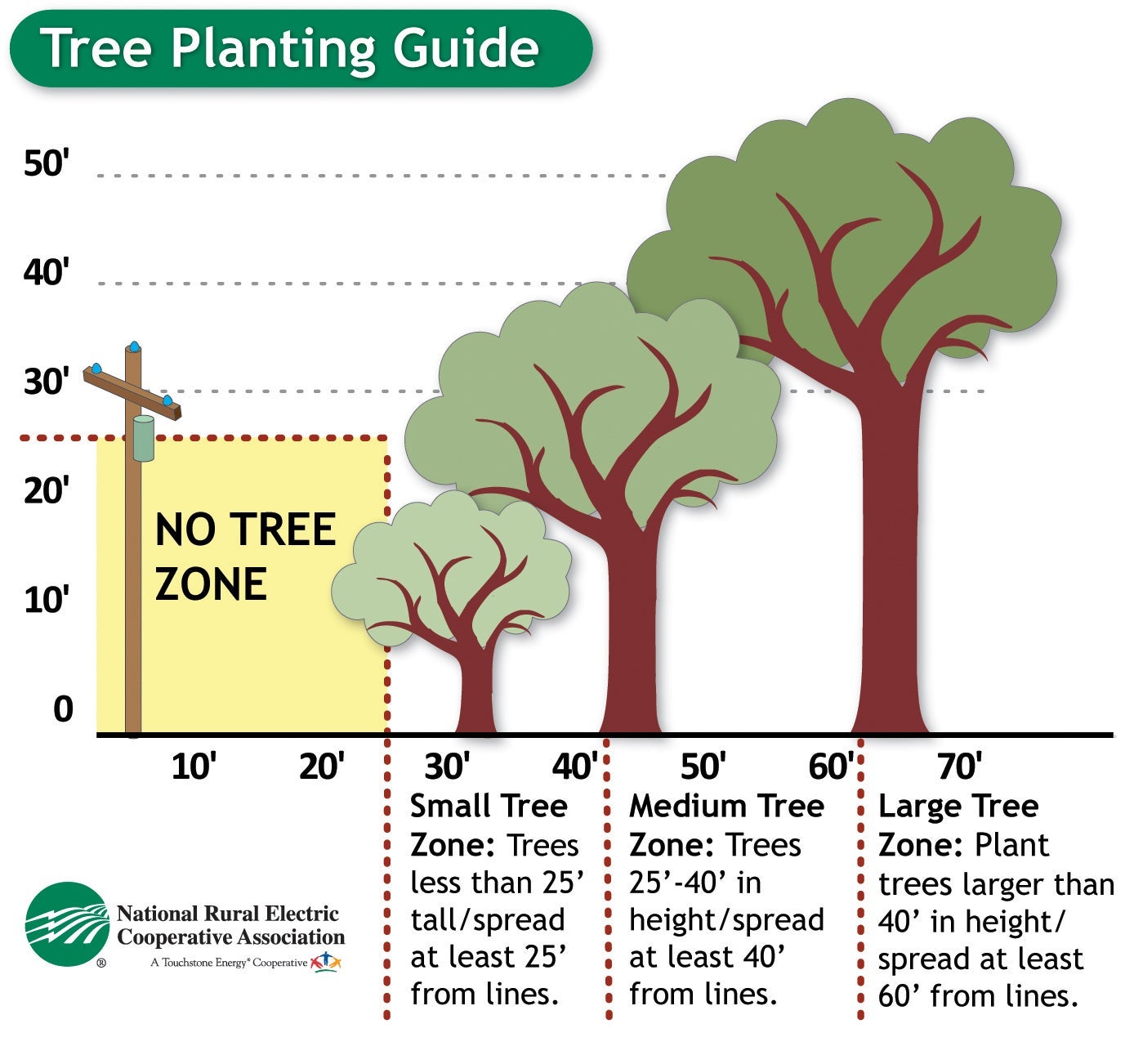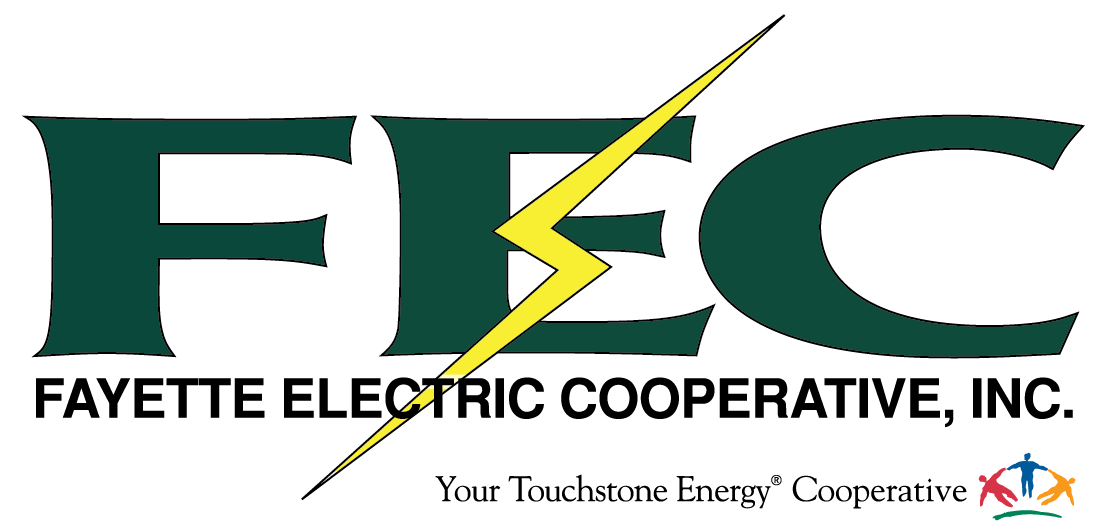CONTACT US: (979) 968-3181 or (866) 968-3181 | PAY BY PHONE: (844) 971-1048 | TEXT "OUT": (844) 971-1048
Safety
At Fayette Electric Cooperative, safety is at the heart of everything we do.
Safety Demonstrations
At Fayette Electric Cooperative, safety is at the heart of everything we do. We are dedicated to protecting our employees, members, and communities by promoting safe work practices, maintaining reliable infrastructure, and providing ongoing education on electrical safety. In addition to delivering dependable, efficient power at a competitive price, we support the communities we serve through safety programs that raise awareness and help prevent electrical hazards. By prioritizing safety, we ensure the well-being of all those we serve.
FEC employees use creative approaches and assistance from the Louie the Lightning Bug video and the Electric Junction, to teach children about electricity. Arcing demonstrations by line crew personnel are also very powerful at driving home the message of safety to school children as well as adults.
For more information about electric safety programs, contact Tracy Denton at 979-968-3181 or tracya@fayette.coop.

Safe Outdoors
Call Before You Dig
Fayette Electric’s underground lines carry enough electricity to seriously injure or even kill anyone who encounters them.
Call FEC at least two days before starting your digging project. This time frame ensures that markings stay visible.
Important: FEC will only mark lines placed by FEC. Lines installed privately or by an independent builder are not eligible for marking by FEC.
It’s the Law
When using mechanical equipment to dig 16 inches or deeper, state law requires that you call FEC at 1-866-968-3181 at least 48 hours in advance to locate underground electric lines
- If this law is not followed, you may be fined $500 to $5,000.
- You are liable for damages to FEC facilities and all the liability the Cooperative incurs because of the contact.
Working Clearance
Maintaining the proper clearance from a high-voltage electric line is not just a good safety practice, it’s the law.* In Texas, any contractor, corporation, or individual not affiliated with the utility must follow these guidelines:
- No person will perform any activity within six feet of overhead lines.
- No person will operate or use any tool, equipment, machinery, or material where these devices may come within six feet of overhead lines.
- No person will operate any equipment such as derricks, cranes, power shovels, hay-loaders, pile drivers, hoisting equipment, or similar devices, within 10 feet of overhead lines.
- No stationary LP-gas container shall be placed in any area directly beneath an electric distribution line (does not include a customer service line) and that area which is six feet to either side of the line.
- No water well shall be located within 50 feet of an electric distribution line.
When work must be performed within these clearances, the organization or individual responsible must contact the utility and plan to ensure safe clearances.
Violations of these provisions of the law can result in fines, confinement in jail, or liability to the utility for damages and all liability incurred.
*Chapter 752, Vernon’s Health and Safety Code
Downed Power Lines
Accidents, severe storms and other disasters can cause power lines to come down. With one wrong move before, during or after a disaster, a life can be lost. Know the right steps to take to keep you and your family safe:
- If you see downed power lines or other damaged electrical equipment, notify the local electric utility as soon as possible because the lines could still be energized or “live.”
- Just because power lines are damaged does not mean they are dead. Stay away and instruct others to do the same.
- Power lines do not have to be arcing or sparking to be live and dangerous.
- Downed power lines, stray wires, and debris in contact with them all have the potential to deliver a fatal shock. Stay clear of fallen power lines and damaged areas that could hide a hazard. Be alert during clean-up efforts.
- Treat all power lines as if they are energized until there is certainty that power has been disconnected.
- If a power line has landed on the ground, there is the potential for the area nearby to be energized. Stay far away and warn others to do the same.
- Do not attempt to drive over a downed power line.
- If you are driving and come along a downed power line, stay away and warn others to stay away. Contact emergency personnel or your utility company to address the downed power line.
If power lines should fall on your vehicle while you are driving, do not attempt to drive away or get out. Call for help and stay inside until utility crews say it is safe to get out. The only exception would be if fire or other danger, like the smell of gasoline, is present. In that case, the proper action is to jump — not step — with both feet hitting the ground at the same time. Jump clear. Do not allow any part of your body to touch the vehicle and ground at the same time. Hop to safety, keeping both feet together as you leave the area.
Any power line that is dead could become energized at any moment due to power restoration or backup generators.
Generator Safety
Portable generators are a godsend during a prolonged electrical outage. Fayette Electric urges its Members to exercise caution when operating portable generators.
Avoid ‘Backfeeding’
- Never try to power the house wiring by plugging the generator into a wall outlet, a dangerous practice known as “backfeeding.” It sends power from your house back through electric lines. Safely connecting a generator to your house wiring requires the help of a professional elec- trician. Backfeeding could ruin appliances, cause a fire, or even injure a co-op employee who might be working on nearby lines. If you must connect the generator to the house wiring, have a qualified electrician install a double-pole, double-throw (DPDT) transfer switch.
- Plug appliances directly into the generator, or use a heavy-duty, outdoor-rated extension cord that is rated (in watts or amps) at least equal to the sum of the connected appliance loads. Check that the entire cord is free of cuts or tears and that the plug has all three prongs. Never remove the grounding pin.
- Keep the generator dry and do not use it in rainy or wet conditions. Operate it on a dry surface under an open, canopy-like structure. Make sure your hands are dry before touching the generator.
- For power outages, permanently installed stationary generators are better suited for providing backup power to the home.
Danger from Carbon Monoxide Gas
Never use a generator in enclosed or partially enclosed spaces. Generators can produce high levels of carbon monoxide gas (CO) very quickly, which you cannot smell or see. Even if you can’t smell exhaust fumes, you may still be exposed to CO. If you start to feel sick, dizzy or weak while using a generator, get to fresh air right away. The CO from generators can rapidly lead to full incapacitation and/or death.
If you use a portable generator, you should install CO alarms, test them frequently, and replace dead batteries.
Call Before You Dig
Call 811 at least 48 hours before you dig to avoid hitting underground utility lines.
About 811:
- 811 is the national “Call Before You Dig” phone number. It was created to help prevent people from contacting underground utility lines during digging projects.
- The first step in safe digging is to call 811 or visit call811.com before ever starting any digging project.
- Reach out two to three business days before starting a digging project. It takes a few business days for professionals to come mark your utilities with flags and/or spray paint. Advance notice requirements vary from state to state.
- Make sure to tell the operator where you plan to dig and what type of work you will be doing. The 811 operator will then route you to a local utility locating service. Then mark where you plan to dig with white spray paint or flags.
After contacting 811, locators will then be sent to your digging location to mark the areas where public utility lines are buried, free of charge.
What utilities are buried underground:
Electricity is not the only utility that can be located underground. Gas, water, sewer, communications, and telephone lines can also be buried beneath the earth. When located the following utilities are marked with the following colors:
- Red – Electric
- Orange – Communications, Telephone/CATV
- Blue – Potable Water
- Green – Sewer/Drainage
- Yellow – Gas/Petroleum
- Purple – Reclaimed Water/Irrigation
- White – Proposed digging/excavation
For homeowners and contractors:
- Even if you previously had utilities located by calling 811, it is best to call before every digging project. Underground utilities can shift, and it is important to be certain of where they are before ever putting a shovel in the ground.
- Make sure all utilities are marked before beginning a digging project and that you are wearing all the proper protective gear.
- There is no project too small or task too menial that you don’t have to take the proper precautions before a digging project.
- Remember, other people and businesses may also rely upon these utilities buried in the yard.
- Always respect the utility markings and dig with care.
- If you accidentally encounter an underground utility, do not bury the problem. Your priority should be evacuating the area for safety. It can be difficult to locate exactly where a problem is after the damage occurred and was buried. Damage to some underground utilities can cause dangers and inconveniences miles away from the actual site of the damage.
- Small nicks in underground wires can be expensive, but necessary, to fix. If you nick an underground utility, notify your utility provider. Do not attempt to fix the problem yourself.
Tree Trimming
A well-maintained right-of-way prevents outages and enhances safety by keeping trees and limbs clear of power lines.
Fayette Electric Cooperative’s right-of-way program is a continuous, preventative maintenance program that involves trimming trees, removing dead and dangerous trees, and removing underbrush. A properly maintained right-of-way helps to reduce or eliminate power outages by keeping limbs and trees away from power lines.
Power outages caused by trees falling into power lines or electric service drops are one of the biggest problems that occur during thunderstorms, ice storms or whenever high winds blow through the service territory.
FEC constructs power lines for our Members on easements provided by the property owners. The co-op’s utility easements are filed with the County Clerk to provide ingress and egress by our crews in order to maintain the power lines and to keep the rights-of-way clear of trees and brush.
When crews clear a right-of-way, the minimum distance to cut back trees and brush is 20 feet – 10 feet on each side of single-phase lines. A 30-foot right-of-way, 15 feet on each side, is cleared under three-phase lines. Both procedures are standard for the industry.
Tree Planting Guidelines
PLAN BEFORE YOU PLANT
Location, Location, Location. It's everything when planting trees.
Trees that grow into power lines can create a safety hazard for children climbing them, individuals trimming them, or crews working on electrical lines.
More than half of all power outages are caused by trees or limbs touching or falling on power lines.
THE RIGHT TREE IN THE RIGHT SPOT
When selecting your tree, be sure to consider its size at maturity.
FEC recommends planting trees at least 50 feet from power lines.
Don't gamble with your safety - call FEC at 979-968-3181 or 1-866-968-3181 before you dig - to locate and mark any underground utility lines.

Electrical Safety Tips
- Having a safe home includes periodically checking appliance cords for damage.
- Electrical cords, plugs and connectors should be disposed of as soon as you notice damage.
- Prevent any potential accidents or fires by getting rid of appliances with cracked or frayed electrical cords.
- If your small appliance has seen its better days, do not use it. Instead, remove the cord and discard or recycle it.
- If an item that’s plugged into an outlet drops into the water, don’t pull the plug or reach in to get it. Instead, turn off the power at the main breaker panel.
- Test ground fault circuit interrupters (GFCIs) in your kitchen and the rest of the house once a month to make sure they are working properly. They can protect you and your family from shocks, fire and burns.
- The most common causes of electrical fires are:
Incorrectly installed wiring.
Overloaded circuits.
Defective plugs, switches and outlets.
Misuse or poor maintenance of lighting. - Avoid overloading extension cords, power strips or outlets.
- Keep products with line cords away from sinks, puddles, pools, ponds and hot tubs.
- Never remove the third prong from a 3-prong plug. Dispose of electrical items and extension cords with damaged prongs.
- Read instruction manuals. Use goggles or other safety aids. Never bypass a safety device.
- Match product power needs to extension cord label information and make sure they are rated appropriately for outdoor use.
- Store outdoor electrical products indoors.
- Use only weather-resistant products outdoors.
- Keep off and away from pad-mounted transformers. If you notice the cabinet doors or locks have been tampered with or left open, contact us immediately at 979-968-3181.
- Locate overhead power lines before flying kites, or house painting, and keep ladders away.
